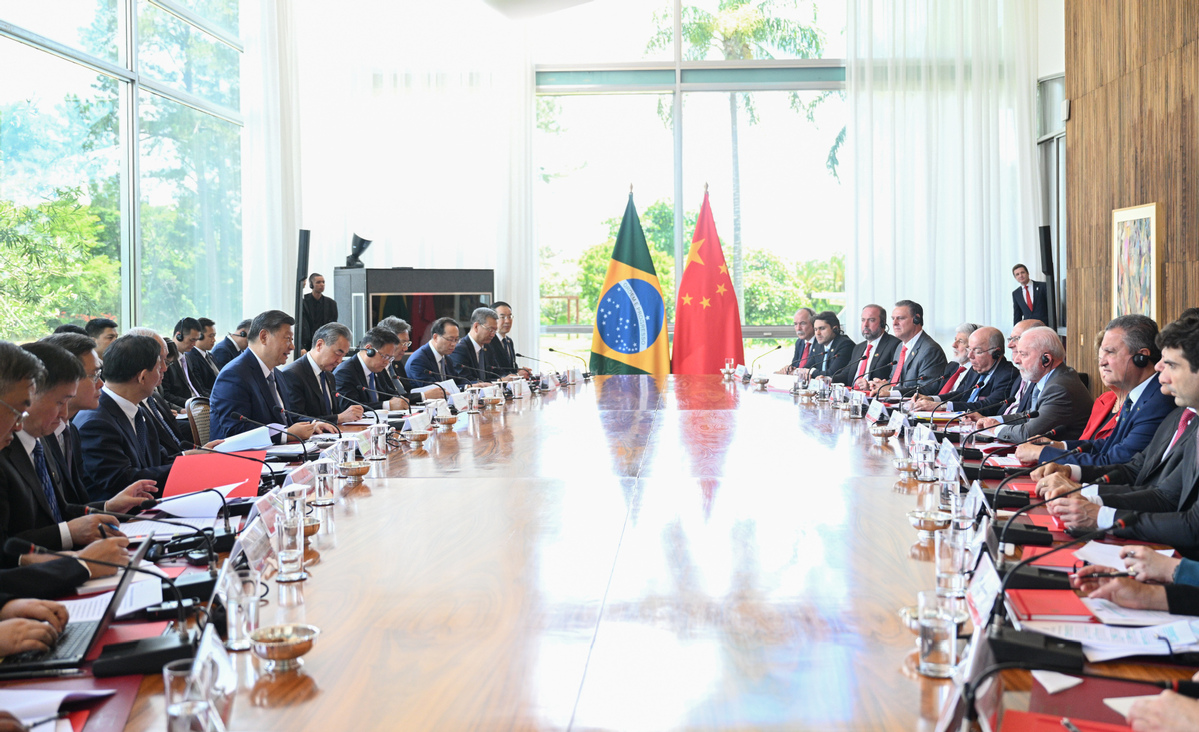China, Brazil elevate ties to forge shared future


SYNERGIZING DEVELOPMENT STRATEGIES
At the heart of the leaders' discussions was a commitment to align the BRI with Brazil's key development strategies. These strategies aim to modernize Brazil's infrastructure and strengthen regional connectivity, goals that echo the BRI's mission of enhancing global trade and development through shared infrastructure.
The two sides should deepen cooperation in priority areas such as economy and trade, finance, science and technology, infrastructure and environmental protection, and strengthen cooperation in emerging fields such as energy transition, the digital economy, artificial intelligence and green mining, Xi said when jointly meeting the press with Lula after their talks.
Lula, for his part, highlighted plans to focus on expanding and deepening cooperation in areas such as sustainable development, infrastructure, finance, energy transition, and aerospace.
Concrete projects are already underway. For example, the Belo Monte UHV transmission project, which creates an "electricity expressway" linking north and south of Brazil, has not only provided adequate power to industrial hubs there, but also solved the power shortage problem for over 22 million Brazilians.
Meanwhile, Brazil's abundant renewable resources, including hydroelectric, solar, and wind energy, align seamlessly with China's expertise in clean energy technology and manufacturing.
Over the past years, Chinese companies have been actively participating in Brazil's renewable energy sector, particularly in large-scale solar and wind projects, contributing to job creation and technological upgrades in the country.
In a signed article published in Brazilian media ahead of his visit, Xi called on both countries to "seize the opportunities offered by the times" as the new sci-tech revolution and industrial transformation gather pace.
"We should foster more exemplary projects that align with the trend of the times and deliver lasting benefits to the people, and contribute to the common development of our countries and regions," Xi wrote.
Gleisi Hoffmann, president of Brazil's Workers' Party, highlighted the steady growth of economic and trade relations between Brazil and China over the past 50 years. She noted that the partnership has not only met the needs of both nations but also leveraged their respective strengths to create complementary cooperation.
In recent years, she said, China has achieved remarkable progress in areas such as technology, education, and health. Looking ahead, Hoffmann expressed confidence in the potential to deepen collaboration in these fields, envisioning a future marked by what she described as a "new golden 50 years."
China is promoting high-quality development with new quality productive forces, said Mayara Araujo, a researcher from Brazil's Fluminense Federal University, referring to advanced productivity that features high-tech, high efficiency and high quality.
Linking Brazil's development strategies with the BRI will bring more new opportunities to improve and upgrade cooperation between the two countries, said Araujo.























